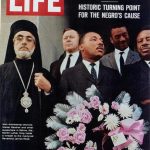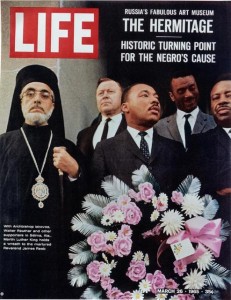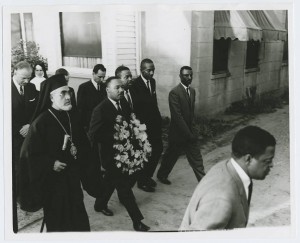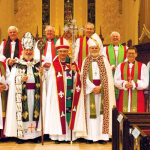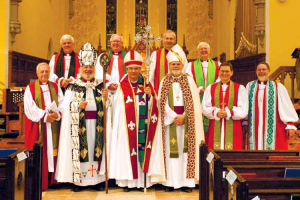Deprecated: trim(): Passing null to parameter #1 ($string) of type string is deprecated in /home/aoiusa/public_html/wp-content/plugins/sexybookmarks/public.php on line 388
Deprecated: trim(): Passing null to parameter #1 ($string) of type string is deprecated in /home/aoiusa/public_html/wp-content/plugins/sexybookmarks/public.php on line 394
Deprecated: trim(): Passing null to parameter #1 ($string) of type string is deprecated in /home/aoiusa/public_html/wp-content/plugins/sexybookmarks/public.php on line 400
The Ministry of an Orthodox Army Chaplain in Southwest Asia Post-9/11
by Alexander F. C. Webster
This article appeared in the Nov/Dec 2013 issue of Touchstone: A Journal of Mere Christianity.
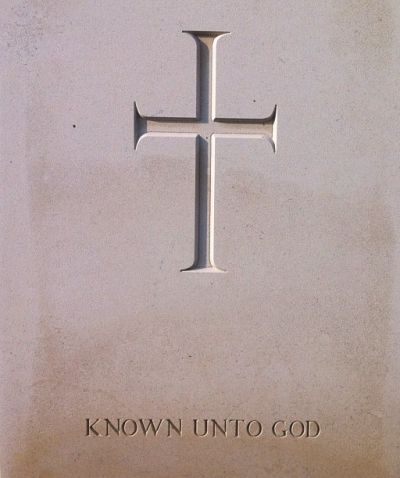 At 11:20 p.m. on April 3, 2010, a loud explosion broke the night silence around the main chapel on Bagram Air Field (BAF) in Afghanistan.
At 11:20 p.m. on April 3, 2010, a loud explosion broke the night silence around the main chapel on Bagram Air Field (BAF) in Afghanistan.
I was putting on my vestments in preparation for the midnight Paschal services. A few of the attendees rushed outside the wooden building to see what was happening. Then, two minutes later, a second shell landed so close that it rocked the chapel as if an earthquake had hit us.
At that point, the intrepid souls outside were summoned back inside the chapel to at least a modicum of safety under our wooden roof, which was better than open air. And I confronted my own mortality with a calm serenity that, frankly, surprised me. Was this a “creeping” rocket or mortar bombardment that would take out our chapel next—and those of us in it? If so, there was nothing we could do about it except continue to prepare for the Feast of Feasts: the situation was truly in God’s hands.
My first thought after the second shell exploded was of my family—the shock and grief they would have to endure if, in the next few minutes, I became a casualty of war.
My second thought was more hopeful. Here I was, vesting for the Divine Liturgy on the greatest night of the Christian year, putting on the “whole armor of God” as befits a priest, in the presence of U.S. and Coalition soldiers, sailors, airmen, and marines, who were in a God-forsaken corner of the world to restore justice and peace after the atrocities of 9/11. What better way to die than with our boots on, literally, and gathered together to celebrate the conquest of sin, death, and injustice by our Lord God and Savior Jesus Christ?
Well, the third shell never arrived, praise God, and we proceeded to celebrate Pascha with a joy—and relief—that none of us had ever known.
That was my last night on my last 30-day tour in Afghanistan, after five years back on active duty as a U.S. Army chaplain for the express purpose of visiting Orthodox U.S. and Coalition forces in the combat areas two or three times each year. I retired from the Army, as planned, two months later, after 24 and a half years of service, delighted to be alive and thankful for the unique, unexpected opportunities with which I had been blessed.
A New Military Ministry
Now, I have a confession. On September 11, 2001, I did . . . nothing! Not by choice, to be sure, but owing to circumstances. When the second hijacked U.S. civilian airplane hit the World Trade Center in New York City at 9:03 a.m., I immediately donned my military uniform—the old “woodland” camouflage battle dress uniform—and waited for the inevitable phone call from Fort A.P. Hill. The armory of my Engineer Brigade, 28th Infantry Division (Mechanized), in the Virginia Army National Guard, for which I served part-time as chaplain, was the Emergency Operations Center for more than half of the great Commonwealth of Virginia. Surely, I thought, we’d be mobilized to prepare for possible attacks by the then unknown terrorists elsewhere in our country, perhaps even in Virginia.
Minutes after the third hijacked airplane crashed into the Pentagon at 9:37 a.m., I called my brigade commander and learned to my dismay that we had received no alert, no mobilization—no nothin’!
So I sat by the silent phone in front of a television set, waiting in vain until evening, when I traveled to my Orthodox parish church in Falls Church, Virginia, to offer a panikhida memorial service for all the victims of that fateful day.
But it was precisely 9/11 that, a few years later in 2005, launched a new military ministry in the combat areas in southwest Asia.
Few but Demanding
The Eastern Orthodox demographics in the U.S. armed forces are rather paltry—only an estimated 0.3 percent (that’s point three) of our uniformed personnel. But along with the Roman Catholics, Jews, Muslims, Buddhists, and Hindus, we’re a major, historic, unique “faith group” with unique religious needs and obligations that only clergy of our faith identity and endorsement can serve. Thus, each of these faith groups is deemed HD/LD: a “high demand/low density” religion—in other words, at once too small and too unique for chaplains assigned at random to provide for their religious needs.
To meet the religious needs of our Eastern Orthodox personnel for the “Holy Mysteries”—the sacraments of Holy Communion, Confession, and Anointing of the Sick and Wounded—especially in combat areas, the U.S. Army Chief of Chaplains, a two-star general officer, decided to call me back to active-duty service upon the request of Metropolitan Herman (Swaiko), first hierarch and military chaplain endorser for the Orthodox Church in America. Though a recently promoted full-colonel in the U.S. Army Reserve, I hardly expected this. Why fetch a chaplain who had served only part-time for most of his military career (after an initial tour of active duty in the 1980s) to serve in a senior, coveted colonel position, when there were plenty of regular Army colonels who had served their entire careers on active duty, with the multiple relocations and frequent uprooting of their families, including overseas assignments, that such service entailed?
But the Chief had already summoned a rabbi in the U.S. Army Reserve for the same purpose of going “downrange,” as we say, or into harm’s way, several times each year for the principal Jewish holy days. I would be Chaplain (Colonel) Ira Kronenberg’s Orthodox Christian counterpart.
When I first heard the news, I recalled the memorable line of Winston Churchill, one of my boyhood heroes, when he was summoned by King George VI to become Prime Minister of war-torn Great Britain in May 1940: “I felt as if I were walking with destiny, and that all my past life had been but a preparation for this hour and for this trial.”
Serving in Many Places
My post-9/11 active-duty military ministry was much more than I could have dreamed, the defining period in my vocational service to God and country. Among the many places I visited and where I served our troops in southwest Asia are several that should be familiar from both ancient history and our contemporary newspapers:
- Mosul, Iraq, near historic Nineveh, capital of the vicious Assyrian Empire, scourge of ancient Israel, and the site of a sixth-century Syrian Orthodox monastery within the confines of Forward Operating Base Marez.
- Abu Ghraib, the infamous prison facility west of Baghdad, Iraq— a dreary place where U.S. military personnel, when I was there in August 2005, had to don full body armor, in case of enemy mortar attack, simply to use the outdoor port-a-potties.
- Tikrit, Iraq, home of the deposed and ultimately executed Iraqi dictator, Saddam Hussein.
- Victory Base Camp, near Baghdad, where Hussein had been incarcerated in secret and where the main dining facility (DFAC in military parlance) rivaled the most sumptuous American college dining hall.
- Convoys on the most dangerous seventeen miles in the world, known as “Route Irish,” the main highway from Victory Base Camp to the International Zone (IZ) in Baghdad.
- Baghdad’s IZ, otherwise known as the “Green Zone”—that is, a relatively safe area, where diplomats and other political types, as well as military personnel, walked around almost blissfully without body armor until indiscriminate rocket and mortar fire from assorted terrorists across the Tigris River rendered the green-for-go moniker obsolete.
On August 15, 2007, I celebrated the Divine Liturgy for the Great Feast of the Dormition of the Theotokos with the invaluable assistance of Katherine Beauchamp, a gentle Orthodox laywoman as well as an extraordinarily professional, resourceful, senior military intelligence warrant officer in the Marine Corps, who managed to scrounge up a bouquet of live flowers in that desert clime for me to bless.
- The little, Arab, oil-rich monarchies of Qatar and Kuwait, which, compared to Iraq and Afghanistan, seemed like vacation spots.
- Kabul, Khowst, Jalalabad, Sharana, and BAF in Afghanistan—where Alexander the Great trod in the fourth century b.c., when that benighted land was known as Bactria—and, above all, the Coalition’s Kandahar Air Field, where the Romanian, and later Bulgarian, compound contained a delightful wooden Orthodox chapel constructed in the Bukovina-Transylvania thatched-roof style and replete with icons, iconostasis, and altar: the most peaceful place, for me, in the region, where I always felt completely at home.
- Kyrgyzstan, which is so far east that, due south of Manas Air Base, near Bishkek, lies the westernmost territory of the People’s Republic of China.
A Multi-National “Parish”
The primary mission for those far-flung deployments was, of course, to provide Orthodox Christian priestly ministry. During the course of my twelve month-long “mini” deployments to southwest Asia from 2005 to 2010, I heard more than a hundred confessions and counseled numerous troops, and I provided various teaching or “training” opportunities for other chaplains and chaplain assistants, particularly in ethics, my primary area of academic and pastoral expertise. Most essential were the 197 liturgical services I celebrated (including the “regular” Sunday Divine Liturgy on whatever day I was able to visit, vespers services on Saturdays or the eves of feast days, and the full panoply of special liturgies during Great Lent and Holy Week) for an aggregate of 2,056 attendees. (The chaplain assistants obviously kept good, precise records.)
Now that I have retired
from active military service
and reflect on my wartime
experiences as a chaplain, I can
appreciate more than ever the
wisdom of Benjamin Franklin
during a critical impasse at the
Constitutional Convention in
1787: “I have lived, Sir, a long
time, and the longer I live, the
more convincing proofs I see of
this truth-that God governs in
the affairs of men.”
Perhaps the highlight was a Divine Liturgy on August 16, 2006, for the Great Feast of the Dormition—celebrated a day later than usual owing to logistical issues—at Camp Sarketvelo (“Georgia” in the ancient Georgian language from the Caucasus region in Asia) in Baghdad’s IZ. Three Orthodox troops from America joined 200 Georgian soldiers, who, to the astonishment of my Protestant chaplain assistant, stood at attention and in military formation during the entire Liturgy.
None of the Georgian Orthodox soldiers initially came forward to receive Holy Communion, since they had been unable to confess their sins beforehand, owing to my limited time on site. Holding the chalice high, I announced (through a translator) that there might not be another Orthodox priest in their midst for several more months or before they redeployed to their homeland. In view of their exceedingly dangerous missions—gate guard duty and convoy escorts—I would take upon my own priesthood whatever unconfessed sins they might have. I urged them to come to the chalice, and every one of those 200 Orthodox soldiers communed that day.
What is most memorable, of course, is not the statistics but the persons encountered. And the persons I served as a chaplain were some of the finest Orthodox fighting men and women from the United States as well as from the Coalition nations with predominantly Orthodox Christian constituencies, including Georgia, as already noted, Romania, Bulgaria, Greece, and Macedonia. I also served Orthodox soldiers and civilians from Poland, Serbia, Latvia, and Slovakia, Russian civilian barbers (all women) in Afghanistan, and Coptic Orthodox medical doctors at the Egyptian Hospital on BAF in Afghanistan.
Informed in advance that a small Bulgarian battalion was stationed at Camp Phoenix in Kabul, Afghanistan, as I prepared to deploy there in December 2009, I read Under the Yoke, the epic nineteenth-century novel by Ivan Vazov, Bulgaria’s Dostoevsky. When I finally met Colonel Petko Libov, commander of the Bulgarian unit at that FOB, he was surprised and delighted that an American, even an Orthodox priest, could converse with him about the Bulgarian insurrection against the Ottoman Turks in 1876. He urged his troops to attend the Orthodox chapel services and led by example.
The Americans to whom I ministered included commanders and troops from all the service components—Army, Navy, Air Force, and Marine Corps. The vast majority have, of course, worn the Army camouflage uniform and hailed from the most storied units as they deployed, in turn, to the region: 82nd Airborne Division, 101st Air Assault Division, 10th Mountain Division, 25th Infantry Division, 1st Infantry Division, 3rd Infantry Division, 4th Infantry Division, 1st Cavalry Division, 173rd Airborne Brigade, 29th Infantry Division (Light) of the Virginia Army National Guard, and my own sponsoring unit, Third Army, which General George S. Patton once commanded in Europe during World War II.
To each of those international Orthodox warriors I gave a laminated, pocket-sized (“field expedient” in military lingo) icon of Christ or one of the saints, distributing some 2,000 over the five years of my deployments. You might say that my motto was “Have Icon, Will Travel.”
Poignant Moments
Among the many poignant moments and images burned into my memory is the haunting countenance of “Ershad,” a shell-shocked six-year-old Afghan boy at the U.S. hospital at BAF, whom I visited on Pascha afternoon on April 23, 2006. He was a victim of a deliberate Taliban terrorist rocket attack on a local school in Asadabad a week or so earlier. I gave him a teddy bear and some American candy, but the lad continued to stare right through us, a living icon of the horrible consequences of terrorism.
I also recall a bittersweet wake service in the main chapel at BAF, followed by a Fallen Comrade Ceremony and Ramp Ceremony, which I conducted with the soldier’s own Romanian Orthodox infantry unit’s chaplain on April 6, 2009, in both English and Romanian, for a Romanian major killed in action in Afghanistan. The senior Orthodox chaplain in Romania also flew in from Bucharest for the occasion.
For the Fallen Comrade Ceremony, every one of the hundreds of available personnel on the ground at BAF lined both sides of the route of transport from the chapel to the tarmac of the airfield and saluted in silence as the two-vehicle “cortege” passed by slowly. On the tarmac, where a Romanian cargo aircraft waited with its rear entrance ramp lowered to the ground (hence the term “Ramp Ceremony”), hundreds of Romanian troops, as well as the Division Commander (a two-star general officer) and Headquarters staff of the 101st Air Assault Division, stood in formation while we chaplains chanted a brief panikhida memorial service. Then the fallen hero’s casket was loaded into the aircraft and returned to his native soil. That was an unforgettable testament to the truly international dimension of the war on terrorism since 9/11 in which, in the combat areas at least, “we leave no man behind.”
Poetic Moments
There were also some lighter moments, such as the night of December 23, 2007. I was about to hop on a Blackhawk helicopter headed to Camp Grizzly near Ashraf, Iraq, where I would celebrate the Nativity of Our Lord with a contingent of U.S. Marines and a Bulgarian infantry battalion. Suddenly one of the aircraft’s two machine-gunners invited me to sit in the one seat between them, in the front row, facing forward, for the one-and-a-half-hour flight.
How could I refuse—even though the side doors would be open for the entire trip (for their machine guns to stand poised and ready to counter-attack if necessary) and even though it was the dead of winter in north central Iraq, and the bitter cold would assault my face (alas, without the balaclava that I had forgotten to pack in Baghdad) seemingly endlessly?
To keep my mind occupied and to distract myself from the Arctic-like cold, I composed Japanese haiku poems in my head. Carefully hewing to the 5–7–5 meter of the classic literary tradition, I composed poems to convey the marvel of liftoff in a Blackhawk helicopter, the flight over the barren and historic desert terrain below, the view of the Tigris River on either side of midnight, and a safe landing—praise God!
Two years later, back home in the U.S., I was moved to compose a much different haiku—this one about the soldiers, sailors, airmen, and marines who have the dreaded responsibility of delivering next-of-kin death notifications to the families of the fallen:
Twin angels of death,
Green-suited with sympathy,
Ringing the doorbell.
I think I can declare, without fear of contradiction, that most, if not all, military chaplains and combat soldiers would rather endure incoming enemy fire than have to be the bearer of such tragic news to family members who have lost a son or daughter, father or mother, brother or sister. The immediate reactions of these family members have, in my experience, ranged from a frozen stillness in apparent denial to complete collapse in tears on the floor of their doorways. And each time, my own heart broke “on behalf of a grateful nation” and, more importantly, as a fellow human being, a son, a dad, a brother.
A Small Miracle
But one quiet but profound moment revealed how God the Holy Trinity, the Lord of the universe, provides small miracles every day in his usual, inconspicuous way.
On Thursday, December 28, 2006, when my chaplain assistant, Master Sergeant Malcolm Wolfe, and I arrived at the Salerno Forward Operating Base near Khowst, Afghanistan, we discovered to our dismay that the host chaplain staff had not been expecting us. No Orthodox chapel services had been scheduled, so we had to scramble to get the word out about a couple of Divine Liturgies and a vespers service in the next three days.
As it happened (or perhaps this was the first sign of divine providence), the heat in our designated tent was excessive, rendering sleep almost impossible. Early the next morning, MSG Wolfe requested that Base Operations lower the temperature, since there was no thermostat for us to do so ourselves. At 1:30 that afternoon, as I was about to take a brief nap to compensate for a miserable night of little sleep, two Kellogg-Brown-Root (KBR) workers arrived at the tent to adjust the thermostat on the outdoor unit. Both men were Orthodox Christians from Macedonia. At last I had encountered fellow Orthodox on this base!
As I was attempting to identify myself as an Orthodox priest (“Otets Aleksandr, Pravoslavnie”), one of the workers received a cellphone call and repaired to a quiet area beneath a tree near the tent. After ten minutes went by, I wondered what had happened to Marko Dmitrievsky. So I went outside and saw him next to the tree, sobbing uncontrollably in the embrace of his colleague. Marko had just received the devastating news that his mother had died back home in Macedonia. I invited him inside the tent, and there we sat for some fifteen minutes, as he continued to sob for his beloved mother and I hugged his shoulder in silence. Then I asked her name (Hhristana) and prayed for her and for him in a mix of English and Old Church Slavonic, concluding with the signature hymn for the deceased: Vyechnaya Pamyat (“Memory Eternal”).
Marko then mentioned that he had to return to his supervisor in the KBR heating/air-conditioning section to ask his boss for permission to fly home as soon as possible. He was quite worried that, having returned from two weeks of R&R (“rest and recuperation”) only a week or so before, he might not be able to leave. I promised to intercede on his behalf if necessary. A short time before sundown on Friday, I walked to the KBR village and learned that Marko’s supervisor was indeed humane; Marko would begin the long and circuitous journey from Salerno to his mother’s house in Macedonia the next morning. On Saturday, I visited with Marko and prayed the prayer for a journey as he waited for the aircraft to arrive.
Though obviously of great personal significance to Marko, our meeting was a simple pastoral event, one that priests—whether military chaplains or civilians in parishes, hospitals, or college campuses—experience with some regularity. What made this particular encounter so unusual and profound for me was the convergence of otherwise unrelated circumstances at precisely the most opportune times.
I am convinced that the Lord God of the Universe does intervene in the affairs of men and women more often than we know or even ask. The quiet moment on Salerno was one such occasion of divine providence at work in a war zone during the Nativity season—not a moment of military heroism or combat tragedy, as we see in so many Hollywood films about war, nor the spectacular kind of nature-transcending miracle we believers sometimes crave, but the more subtle, almost routine miraculous intervention of a caring, loving, compassionate God in one of the personal crises that so often beset his human creation.
Unchanging Truth
The atrocities of 9/11 have changed America and perhaps the world forever and in unexpected ways. Now that I have retired from active military service and reflect on my wartime experiences as a chaplain, I can appreciate more than ever the wisdom of Benjamin Franklin during a critical impasse at the Constitutional Convention in Philadelphia in 1787: “I have lived, Sir, a long time, and the longer I live, the more convincing proofs I see of this truth—that God governs in the affairs of men.” And I take even greater comfort in one truth that, for Christians, remains a steadfast hope in times of crisis and trouble: “Jesus Christ is the same yesterday, today, and forever.”

Archpriest Alexander F. C. Webster, PhD, is a retired U.S. Army Reserve chaplain in the rank of Colonel and parish priest of St. Herman of Alaska Orthodox Church (Russian Orthodox Church Outside Russia), Stafford, Virginia. This article is adapted from the author’s 9/11 Memorial Presentation on September 11, 2012, at St. Luke the Evangelist Orthodox Church (OCA) in Palos Hills, Illinois.
